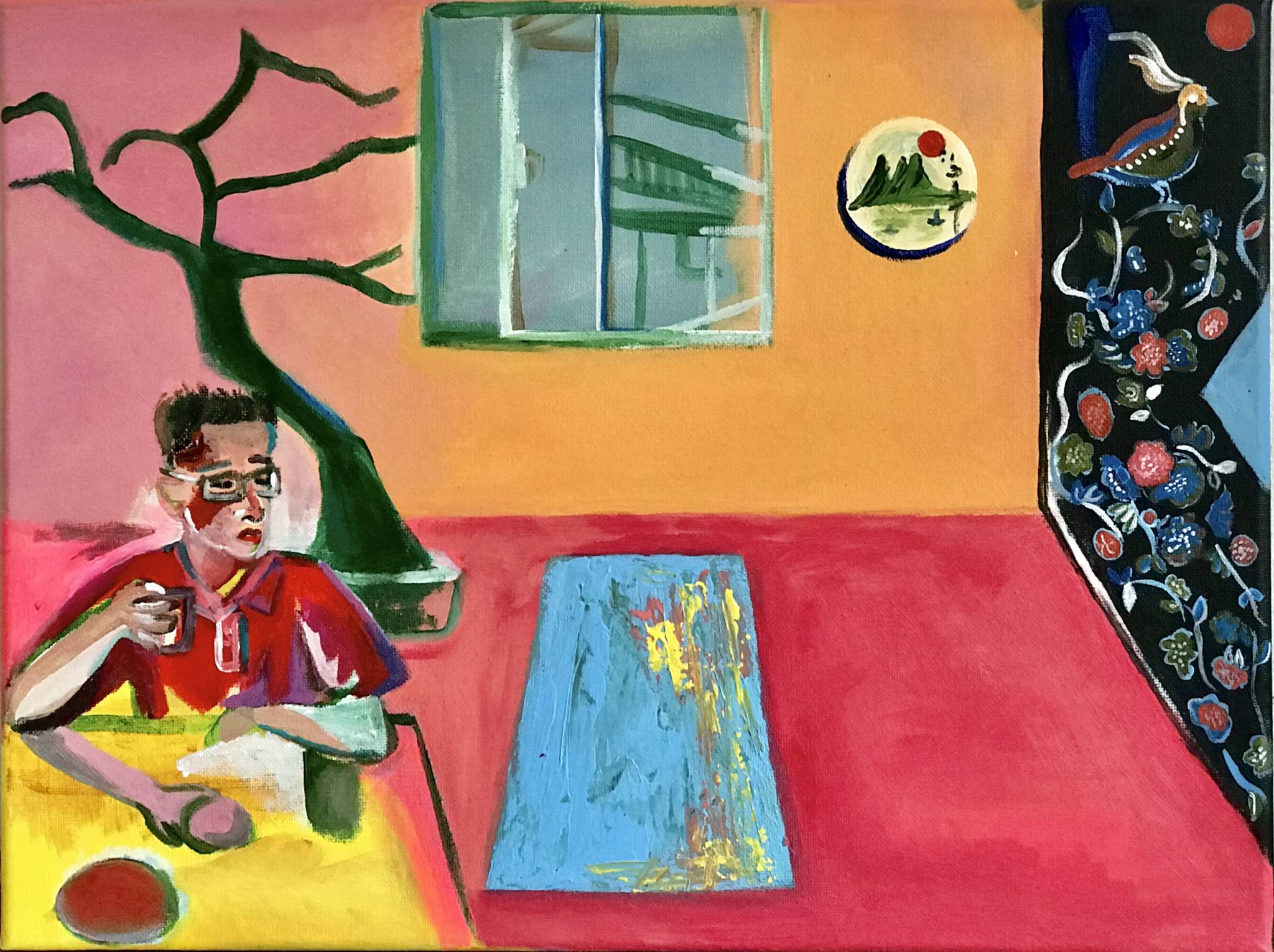By the Humanities Council
In spring 2020, the Humanities Council offered a special round of David A. Gardner ’69 Magic Grants. The “Rapid Response” program called for innovation to sustain the forward momentum of humanities research and for experimentation with new forms of conversation, exchange, and interaction.
This summer, current and former Princeton students learned to paint over Zoom through the “Global Painting Summer Group,” a Magic-supported project with the goal of tackling local and global constraints and creating new possibilities for community-building and learning.
Eve Aschheim, Lecturer in Visual Arts and the Lewis Center for the Arts, conceived the idea at the start of June. She sought to help disappointed students whose internships had been cancelled due to the pandemic. Attendees represented the cities of New York City, San Diego, Seattle, Brooklyn; the states of Kansas, Virginia, Pennsylvania, and Washington; and China. Students met weekly for over two months.
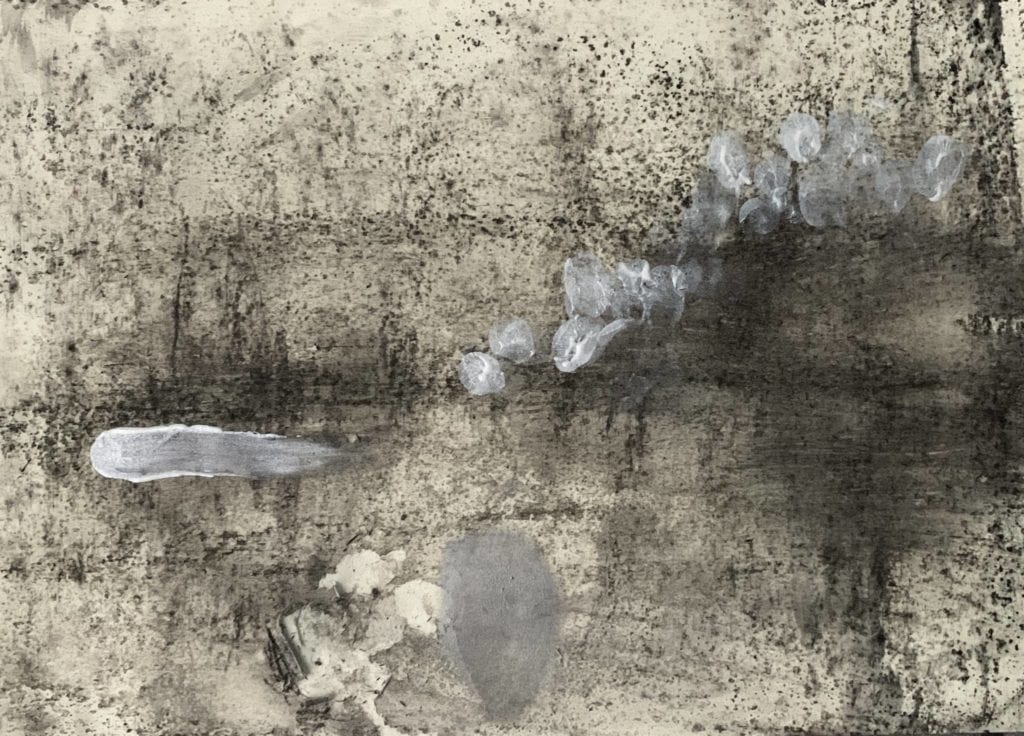
“We are all learning a great deal about how new Zoom models can be forged to cultivate creativity in new ways, and how student artists can work to share local imagery, information and conditions of light and weather, across different time zones, geographic locations, and cultural contexts,” Aschheim noted. “These are some of the most motivated and interesting students who have been in any of my classes.”
Students determined the projects and meeting content, which included presentations by themselves or by Aschheim. Prompts included Clouds; Chartreuse; Heliotrope and Hogarth’s “The Line of Beauty”; Unusual Color; Night Painting; and Spectral Color. Members examined works of contemporary artists including Liu Xiao Dong, Kerry James Marshall, Dana Schutz, Catherine Murphy, the late Noah Davis and Emma Amos, and classical artists like Hopper, Degas, and Matisse.
If one student raised questions about a topic, others would research it, moving the conversation organically toward many different issues in art. Aschheim offered guidance and information about relevant issues and techniques, as well as critiques.
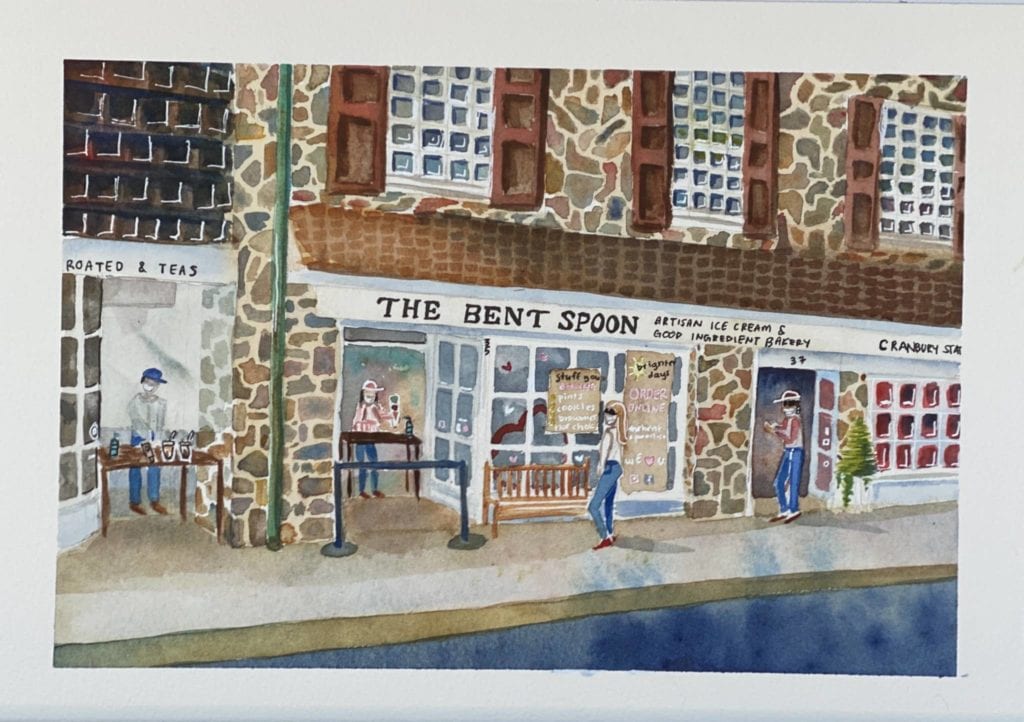
Sann Sanneh ’19 described the class as providing structure and a sense of community in a challenging time.
“It was great to come together with other artists every week, see and contribute new works, and be challenged to create under broad prompts,” he wrote. “I felt more encouraged to experiment and follow threads that didn’t always end up being visually appealing, yet the process of getting to the end piece was itself valuable and informative. … I learned so much about how colors appear and I began to approach colors as forms or objects in a way I hadn’t considered before.”
Aschheim found the experience new because she had never before worked with a group mixing alumni with current students from different classes, especially on Zoom. Given the small size of the Program in Visual Arts, the workshop provided a rare chance to integrate students from different levels and age groups.
Maddy Kushan, a graduate student, who finished her undergraduate degree in June, said she especially loved the chance to meet recent alumni and learn about their projects.
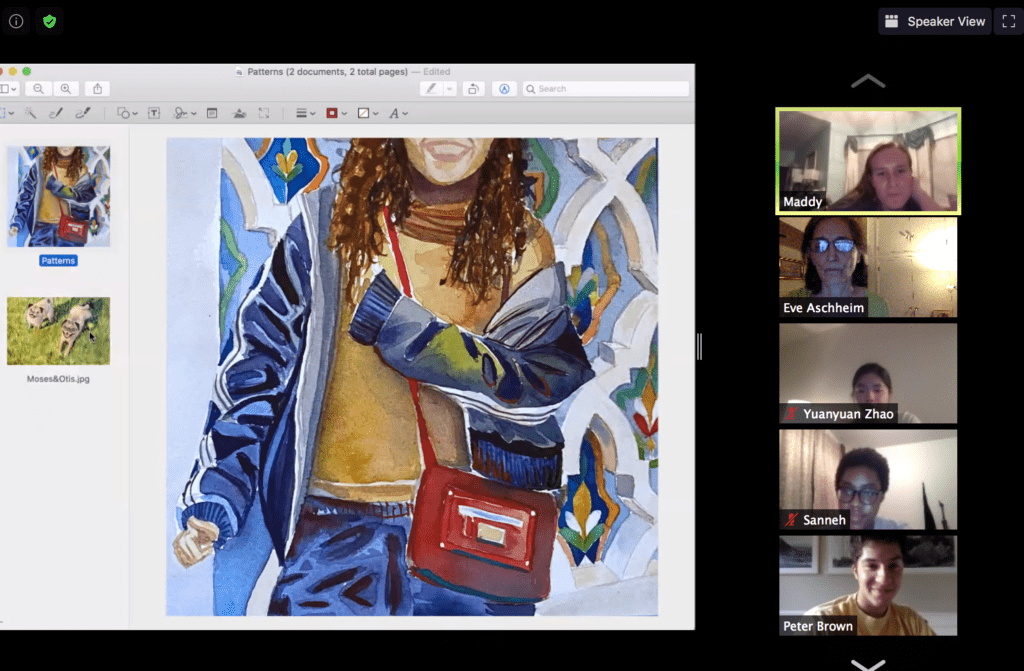
“Unlike the busy schedule of a semester at Princeton, quarantine has provided an abundance of time to focus on producing art that excites us,” she noted. “These themes were wonderful starting points that made me consider a variety of subjects and techniques I hadn’t considered previously.”
Julia Stahlman ’23 expressed gratitude for the opportunity to meet new people during a time of limited social interaction. “Feedback was helpful and constructive. I always looked forward to seeing everyone’s work each week. Seeing what everyone else was accomplishing inspired me to create more,” she wrote.
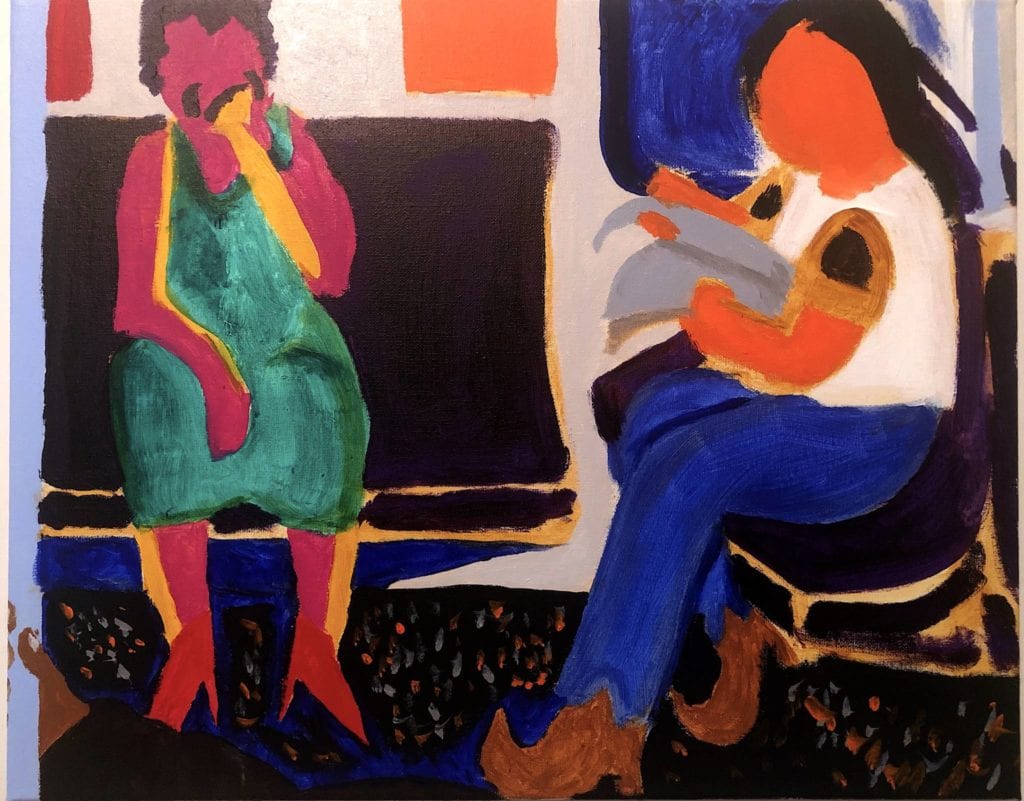
“The painting group was an escape from the quarantine, but it also made me confront the quarantine. I expressed the eeriness of the autonomous daily routines in my paintings. In a way, it made staying at home less daunting because I always looked forward to making new paintings,” Yuanyuan Zhao ’19 noted, praising the class for significantly improving her painting skills.
Aschheim highlighted her enjoyment of building relationships with her students and helping recent graduates by supplying them with serious critique, which often seems scarce after college. She looks forward to being able to host another class.
“During this time of Covid, when we are all so isolated, the group gave us a chance to connect to one another, and to what we care about. It helped us think about the experience of living in isolation, as one of the prompts the students chose was ‘the reopening,’” Aschheim wrote in a reflection.
Read the full list of 2020 Rapid Response Grants here.




